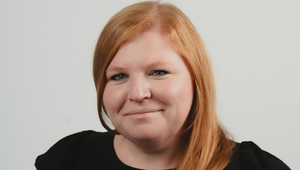
Overdose Lifeline Simulates the Brutal Effects of Addiction in Harrowing Film

Overdose Lifeline (ODL), a nonprofit organisation dedicated to helping individuals, families, and communities affected by the disease of addiction and substance use disorder and leading creative advertising agency, Venables Bell & Partners, have announced today the launch of #ChooseEmpathy. This new movement aims to create a greater understanding of the truths around addiction as well as to remove the social stigmas that surround those affected by the disease.
The #ChooseEmpathy movement will launch with a compelling online video, and include grassroots efforts to educate communities and youth on addiction and substance use disorder. Additional communication efforts will aim to lessen stigmas and common misperceptions around addiction and recovery, promote positive cultural change, and, ultimately, help those on their roads to healing.
“There are dangerous misconceptions about the disease of addiction, and the more than 20 million Americans affected by it.” said Justin Phillips, founder and executive director at Overdose Lifeline. “We all have the power to help and support those in active addiction and recovery by fostering greater understanding and simply using non-stigmatising words to represent addiction. #ChooseEmpathy is an inspiring initiative that asks the media and general public to lessen the challenges of addiction for those affected and ease their journey towards recovery. We at Overdose Lifeline are proud to lead this charge with VBP’s support, and encourage everyone to join the #ChooseEmpathy movement.”
A core component of this effort is a three-minute video created by VB&P senior copywriter Jake Reilly, who set out to better understand addiction and the hurdles that the over 20 million people in the US currently affected by substance use disorder and addiction must overcome. With the input and collaboration of close friends who are affected by addiction, others in recovery, addiction doctors and specialists, directors of rehab facilities, case workers at methadone clinics, and the support of VB&P, Heist Productions, and dozens of others who volunteered their time, Jake created an experiment aimed at uncovering the real story of addiction and the real challenges of recovery. Jake worked to pinpoint the most common physical feelings associated with opioid withdrawal, and created a video which highlighted his own simulation of 12 brutal symptoms. Dialogue in the video was taken directly from Jake’s conversations with his friends, and was reenacted by Jake and an actor. Simulations were recorded over the course of 48 hours in a studio in San Francisco with expert medical, fire, and insect supervision.
“Throughout my life, I have watched friends experiment with prescription pain pills, and subsequently become addicted to prescription opioids and/or heroin. Many of these friends are still in active addiction and substance use,” said Jake Reilly. “Over the years, I found myself wondering why my friends couldn’t just ‘kick the habit’. Now I know how naive this train of thought was. After spending a year researching addiction and the brain-chemistry-altering effects of opioids, I realised that most of us don’t have the faintest idea of what those affected by this disease are actually going through. What my friends, and so many like them, are dealing with is completely out of their control. This experiment was designed to encourage a greater understanding of their experience as well as to serve as an educational tool that can inspire people to #ChooseEmpathy when approaching those affected by substance use disorder.”
In honour of National Recovery Month this September, Overdose Lifeline is asking individuals and the media to commit to more carefully choosing their words when describing addiction and those affected by substance use disorder. Stigmatising language - which emphasizes the person, not the disease - can be a barrier to individuals seeking treatment, and can even prejudice medical professionals.
Such language shifts include avoiding terms that place blame, imply judgement, or sensationalize the disease, and, instead, embracing language that more accurately describes the person’s experiences. For example, we must avoid terms like “abuser,” “user,” “addict,” “junkie,” or “druggie,” and instead opt for language that describes a person with “substance use disorder,” and refers to the disease as such. These suggested language shifts and others are outlined for the media in the AP’s stylebook, and will also be promoted to the broader public in a social media campaign developed by VB&P & ODL.















